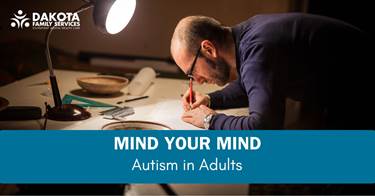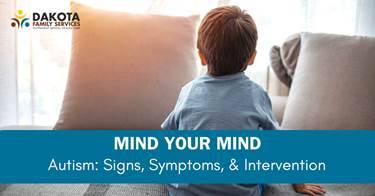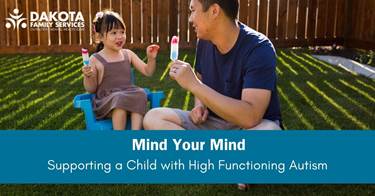Podcast Topics
Medical diagnosis
Many of us know someone who has been diagnosed with a chronic illness, or have been diagnosed with one ourselves. In this episode of Mind Your Mind, host Tim Unsinn talks with therapist April Morris about how chronic illness can impact daily living and mental health, as well as how to seek support if you have been diagnosed with a chronic illness.
Autism in Adults (Community Chat Series)
Autism is sometimes perceived as a disorder that only affects children and adolescents, but it is actually a lifelong diagnosis. In this special Community Chat episode of Mind Your Mind, psychologists Dr. Hannah Baczynski and Dr. Megan Spencer explore the symptoms and nuances of autism in adults, touching on the history of autism spectrum disorder, the research surrounding it, how autism commonly presents in adults, and more.
PTSD: Signs, Symptoms, & Treatment (Community Chat Series)
While often perceived as only relating to those who’ve experienced warfare, Post-Traumatic Stress Disorder (PTSD) can affect anyone. In this special Community Chat episode of Mind Your Mind, Psychologist Dr. Hannah Baczynski and therapist Lucas Mitzel explain what trauma is, how it affects each person differently, and when to seek treatment for trauma-related symptoms. They also discuss different treatment options for PTSD, touching on the pros and cons of each.
Genetic Testing & Its Role in Treatment
Medication can affect people in many different ways. In this episode of Mind Your Mind, host Tim Unsinn and psychiatric nurse practitioner Amanda Daggett talk about genetic testing and its use in discerning how different individuals might react to various medications. Tim and Amanda also touch on some of the facts and myths surrounding genetic testing, including what testing can and can’t indicate and where the science is currently at.
Autism: Signs, Symptoms, & Intervention
In this episode of Mind Your Mind, host Tim Unsinn and psychiatrist Dr. Wayne Martinson discuss autism and signs of it in children, touching on the different levels of the autism spectrum and where people fall. Learn about how autism often affects children's social skills, communication, and behavior, as well as its connections to other disorders and how to handle it.
Going through infertility tests and treatments can be an extremely difficult and lonely time for couples. In this episode of Mind Your Mind, Lucas Mitzel talks about his own experience. He also shares tips for couples struggling with infertility, and for friends and family members who want to be supportive but don’t know what to say or do.
Supporting a Child with High Functioning Autism
While we hear a lot about autism in the news, many of us still have misconceptions about its causes and symptoms. In this episode of Mind Your Mind, therapist Falan Johnson dispels some of these misconceptions and explains the three levels of autism. Johnson then focuses on the least understood level—high functioning autism. Learn how to identify symptoms of high functioning autism in your child, the importance of early intervention, and ways you can support them.
Normalizing Attention Deficit Hyperactivity Disorder
ADHD is diagnosed and treated at a much higher rate than in the past, especially in the United States. Why? In this episode of Mind Your Mind, Dr. Wayne Martinsen, Psychiatrist/Medical Director at Dakota Family Services, explains how the changing world has made it harder for people with shorter attention spans to be successful. In the past, if school was hard for you, you could get a job, work your way up, and live a middle-class lifestyle. Not so in today’s world. Learn more about this fascinating take on ADHD.
How to Support a Friend with Cancer
When someone in our life has cancer, it's difficult to know what to say or how to help. In this episode of Mind Your Mind, Host Tim Unsinn talks to April Morris about how you can best support a friend or loved one who has cancer. Morris, an outpatient therapist at Dakota Family Services, shares tips for knowing what/what not to say, and actions that speak louder than words.










